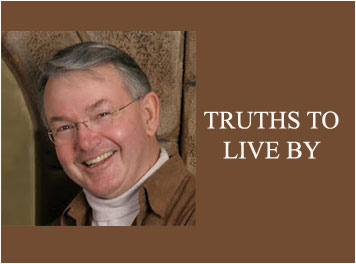By Derwin Gray
When Peter came to Antioch, I had to oppose him to his face, for what he did was very wrong. When he first arrived, he ate with the Gentile believers, who were not circumcised. But afterward, when some friends of James came, Peter wouldn’t eat with the Gentiles anymore. He was afraid of criticism from these people who insisted on the necessity of circumcision. As a result, other Jewish believers followed Peter’s hypocrisy, and even Barnabas was led astray by their hypocrisy. –Galatians 2:11-13
PAUL opposed Peter because Peter ate with Gentiles until “some friends of James”—one of the leaders of the church in Jerusalem—arrived in Antioch. Then Peter stopped eating with the Gentiles. Peter knew the Jewish believers from James didn’t consider the Gentiles full members of God’s family because they hadn’t taken on the ethnic badges of being Jewish (i.e., circumcision). The irony was that in Jerusalem, James, John, and Peter had told Paul and Barnabas to “keep preaching to the Gentiles” (Galatians 2:9).
Why did Peter turn his back on Jesus, his gospel, and his Gentile brothers? Because “he was afraid of criticism.” To eat with someone meant that you accepted them. When the “friends of James” arrived, it was like a middle school lunch scene. In middle school, you might have sat with the kids who were not cool, but then when the cool kids walked by, you got up because you wanted to be included with the cool kids. That’s what Peter was doing in Antioch. But at God’s table of grace, all his kids are the cool kids. Jesus welcomes all to the banquet table of Abraham. At the table of grace, there is no “separate but equal.”
Peter knew that Jews and Gentiles were equal in the family of Abraham through Jesus: he saw Gentiles receive the same Holy Spirit as Jews (Acts 10:34-36). Despite knowing correct doctrine, he gave in to fear. His right doctrine did not lead to right living (holiness). He feared the good ol’ boys from Jerusalem more than he feared his good God. Peter’s ethnocentrism caused the other believers—including Barnabas, who had brought Paul to the multiethnic church in Antioch—to be led astray.
Fear is contagious. So is courage. Choose courage. Paul confronted Peter, Barnabas, and the others because “they were not following the truth of the gospel message” (Galatians 2:14). Ethnocentrism, racism, and indifference to racial injustice do not reflect the truth of the gospel. In the face of criticism, peer pressure, political pressure, economic pressure, and family pressure, we must love Jesus and our siblings in Christ more than we fear rejection.
Paul gave Peter the gospel by reminding him that Jews and Gentiles are made right by faith in Jesus alone, not by striving to fulfill the law through human effort or by the ethnic badges that make a person Jewish. Paul was able to stand up to Peter because of the gospel. The former Jewish nationalist could no longer be a racist because Jesus had made him a gracist. When Paul said yes to Jesus, his old sin nature was crucified with Jesus, and now the resurrected Messiah lived in him. He did not fear people, because he trusted Jesus, “who loved me and gave himself for me” (Galatians 2:20). Paul stood firm in the gospel; so must we.
This article is an excerpt from Dr. Derwin Gray’s book, “How to Heal Our Racial Divide: What the Bible Says, and the First Christians Knew, About Racial Reconciliation“).





















